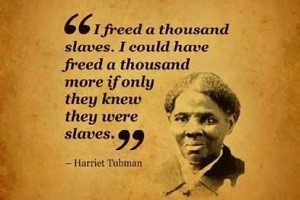“Luke, I am your father;”
the de-masking at the close of the Marriage
of Figaro; the transformation of the Beast into Belle’s prince; the quite
frankly bizarre moment in more than one Shakespeare play when a woman lets down
her hair and only then do the rest of the dramatis
personae realize she’s not a boy: we’re fascinated by these kinds of
scenes, where a character’s true identity, hidden from other characters or even
from the reader, gets made visible, when the dramatic x-ray machine cuts
through flesh and marrow and discloses bone.
This is the vision God granted these three disciples, a disclosure of
the glorious light Christ was in their midst, in contrast to the hiddenness and
homelessness with which he was more normally clothed. But this is not just a revelation about Jesus
with no relevance for the rest of humanity; this is a preview of the glory of
resurrection that awaits us. It’s a re-echoing of the heavenly voice from Christ’s
baptism, the unwavering assertion of his beloved sonship, and another
invitation to hear that voice speaking to us.
Peter,
typically for him, half gets it. He gets
that he’s to be amazed, his heart almost exploding with wonder, love and
awe. He’s caught the beautiful bug of
love for Jesus, but hasn’t caught on that he’s to feed Jesus’ sheep, that God
would build him up so as he can lead others to that same glory. Just a chapter ago, he’d half gotten it
before: making the marvelous confession the Jesus was the Christ, but stubbornly
refusing to contemplate that would Christ suffer for him. Again, he gets the marvel, but doesn’t
understand how things will go from here, what love will really look like. He wants to build tents. He wants to keep this scene pristine, like the
scandal of a Stradivarius violin locked in a display case and never played. And, for a while, the mountain will keep its
secret. “Do not tell this vision to
anyone until the Son of Man has been raised from the dead.” We assume the disciples obeyed. At the time, they may have taken that as an
extravagant way of saying “never tell this.”
But, the
Son of Man has been raised from the dead.
And, so, they told. And we’re to
tell. We’re to tell that death has been
conquered. Jesus has told it on another
Mountain, standing after his resurrection, inviting, pleading “Go! Make of all disciples!”
Jesus has
told it on the Mountain, and we’re to tell it in the plain: The heavenly realm
is not so distant. It has come to earth,
and longs to welcome us into its glory.
It is not locked up in tents on a mountain accessible only to the inner
sanctum of disciples. Peter has come
down, not to build huts on a mountain, but a Church on earth. A proclaiming Church, a missionary Church, a
Church which brings the Light of Mount Tabor to the darkest places of our
earth. A Church which makes present
Christ who reached out and touched his fearful disciples and bid them
rise. A Church which goes out to the
margins, which refuses to give ear to the prophets of doom, a pilgrim Church,
and Church of prophetic sojourners.
A Church of
Abrahams, a Church of Sarahs. Abraham
refused to listen to the cold calculating rational voice that told him that he
and his wife were barren. He listened to
God’s voice, the voice of life, the voice of summons and promise, the promise
that sent him on a pilgrimage, a dangerously open-ended pilgrimage on which he
ventured not knowing what the future might bring. But the Transfiguration has shown us the destination. God promised that all would find blessing in
Abraham, and we know that blessing. We
know the light entrusted to us when God embraced us in baptism. Would that all would find that blessing in
us!
What would
it look life if we were a Church with the faith and fortitude of Peter? A Church with the trust to sojourn like
Abraham and Sarah? If we need a more
modern example, how about if we were a Church with the daring freedom of
Harriet Tubman? Tubman was born into
slavery around 1820 in Maryland. Like
Abraham and Sarah, she had to resist the temptation to succumb to the voice
which spoke to her of barrenness, that claimed she was a thing, a possession,
not a person with potential and promise, a blesséd one with blessing to
carry. God called her up to the mountain
spiritually, speaking to her in trances she experienced from her childhood
on. And then she escaped, she climbed
that mountain in a different sense by walking under cover of darkness into free
Pennsylvania. She later wrote that when
she crossed the state line, she stared in wonder at her hands. “Am I the same person?” she asked
herself. “There was such a glory over
everything and I felt like I was in heaven.”
Imagine the
great temptation to never go near that state line again, to build tents, sturdy
tents, and lock herself in that experience.
But that’s not freedom. That’s
not what she climbed the mountain for.
So, she went back to the plain.
Over the next twelve years, she made nineteen trips back to Pharaoh’s
land, rescuing over three hundred slaves.
Christ will
reach out and touch us when we’re afraid, will bid us rise, will break the
bonds of sin and death and lead us into freedom. The earthquake-like resurrection has broken
the barriers and heaven has come down to earth, to the lowest plains. We are walking through a world bathed in His
grace. There is such a glory over everything.
Can we keep our eyes fixed on that, when all seems gloomy, and lead others into
that glory?

No comments:
Post a Comment